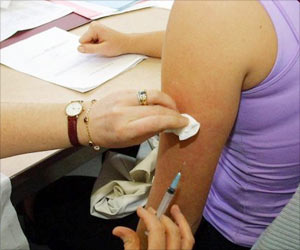.
Researchers wanted to find out what impact the red and processed meat trade might be having on diet-related non-communicable disease trends and which countries might be particularly vulnerable.
They drew on data on meat production and trade from the UN Food and Agriculture Organization (FAO) from 1993 to 2018 for 154 countries, focusing on 14 red meat items derived from beef, pork, lamb, and goat, and processed meat from beef and pork items.
They then calculated the proportions of deaths and years of life lived with disability (DALYs) attributable to diet as a result of bowel cancer, type 2 diabetes, and heart disease among those aged 25 and over in each country.
The global red and processed meat trade increased by more than 148% from 10 metric tonnes in 1993-5 to nearly 25 metric tonnes in 2016-18. While the number of exporting countries fell from 33 in 1993-5 to 26 in 2016-18, and importing countries rose from 121 to 128.
Developed countries in Europe accounted for half of total red and processed meat exports in 1993-95 and 2016-18 but developing countries in South America, such as Brazil, Argentina, and Paraguay made up nearly 10% in 2016-18, up from around 5% in 1993-5.
Diet related attributable death and DALY rates associated with the global meat trade rose in three-quarters of the 154 countries between 1993-5 and 2016-18.
Researchers calculated that increases in red and processed meat consumption, aligned to increases in trade, accounted for 10,898 attributable deaths in 2016-18, an increase of nearly 75% on the figures for 1993-5 worldwide.
The global meat trade contributed to increases of 55% and 71%, respectively, in attributable deaths and DALYs in developed countries between 1993-5 and 2016-18.
The equivalent figures in developing countries were significantly higher: 137% and 140%, respectively, largely as a result of increased demand for meat, prompted by rapid urbanization and income growth.
Between 1993- 2018, island nations in the Caribbean and Oceania and countries in Northern and Eastern Europe became particularly vulnerable to diet-related disease and deaths associated with large meat imports.
The island nations have limited land for meat production, so depend heavily on meat imports, while many of the European countries, such as Slovakia, Lithuania, and Latvia, benefited from regional trade agreements and tariff exemptions after joining the European Union in 2003-4, which accelerated meat imports.
Attributable death and DALY rates associated with global meat trade fell in 34 countries between 1993-5 and 2016-18 but this was partly due to population growth exceeding increases in meat imports in 24 countries, while domestic meat production increased in 19.
This is an observational study, and as such, can’t establish cause. And the researchers acknowledge that many countries import and process red meat items for export, which may have skewed their findings.
This study also shows that global increases in red and processed meat trade contribute to the abrupt increase of diet-related [non-communicable diseases].
Future interventions need to urgently integrate health policies with agricultural and trade policies by cooperating between responsible exporting and importing countries.
Source: Medindia



